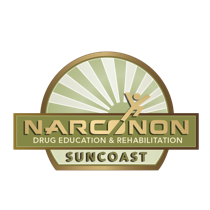How Do We Help Those Who Seem Unwilling to Help Themselves?

It is one of the most common themes I hear when speaking to families regarding a loved one struggling with addiction, “they are not ready,” “they do not want help,” “I wish they would ask for help,” “they do not think they have a problem.” Which begs the question, what can be done when an addict refuses any notion of treatment or help?
Do we simply wait for them to hit rock bottom and desperately hope they survive the fall? Do we take action in an attempt to force their hand? Do we pretend like nothing is wrong while walking on eggshells, knowing full well the current path is one of inevitable destruction? Is tough love the answer?
It is a troubling dilemma for a lot of families and the opinions on it vary, which can cause a lot of tension among family members and friends when all everybody wants is to do the right thing by the person they love and want to help.
One of the main approaches that I tend to disagree with is the idea of waiting for an addict to hit rock bottom.
What is rock bottom anyway? How far does a person have to fall before they hit bottom? How bad does their life have to get?
Regardless of opinions on this subject, the biggest problem with this theory is that in this day in age drugs are far too dangerous to sit idly by and hope an addict survives the fall to the bottom. We are continuing to face a record number of overdose fatalities as the years go by, with nearly every year breaking another record no one wants to be broken. The risks involved in hoping somebody gets bad enough to reach for help are often deadly, and nobody wants to see a loved one die while living in regret wishing they had done more.
Another common practice is to go on pretending that nothing is wrong and avoiding the problem altogether. This presents its own challenges, as resentments and tensions build when nothing is addressed despite things clearly going in a poor direction. This can be an easy path to slide into with loved ones, as confronting an addict about their addiction can be combustible, uneasy, even at times dangerous. Pretending everything is ok, however, when it is not, is where things really have the potential to reach a boiling point for all parties and comes with the same risks as waiting for an addict to hit rock bottom.
Then you have the fallback of constantly confronting an addict on their addiction when they are anything but receptive to questioning. I vividly remember my reactions to people who would question me when I was struggling with my addiction, and they were often far from pleasant. It was a defense mechanism of mine, because the more painful I made it for people to call me out on my addiction, the less likely they were to bring it up. This was one of the many ways I manipulated the people who loved me the most, even though inside I was screaming for help and desperate for a better life free from my addiction.
So, what is the solution when all roads and methods seem to have their pitfalls and uncomfortable outcomes? While this is true to a degree, the primary solution is simple; never give up. The reality is that the fog of drug addiction makes it difficult for addicts to know how to ask for help and using drugs and protecting their addiction is a lifestyle pattern they fall into. However, rarely have I seen a person get the proper treatment and not at least see a new and better path for their life, and that is often where they find the willingness to keep going. For family members and friends of loved ones who may seem unwilling to get help, continue reaching out for help regardless of any preconceived notions or perceptions that the addict is unwilling to go to treatment. Seek counsel and advice from people who have recovered from drug addiction and families who have had loved ones recover from drug addiction. Solutions are out there, even when on the situations appear hopeless. I have seen countless cases deemed hopeless by some find hope their hope and recover.
If you or anyone you know is seeking help, please
reach out.


